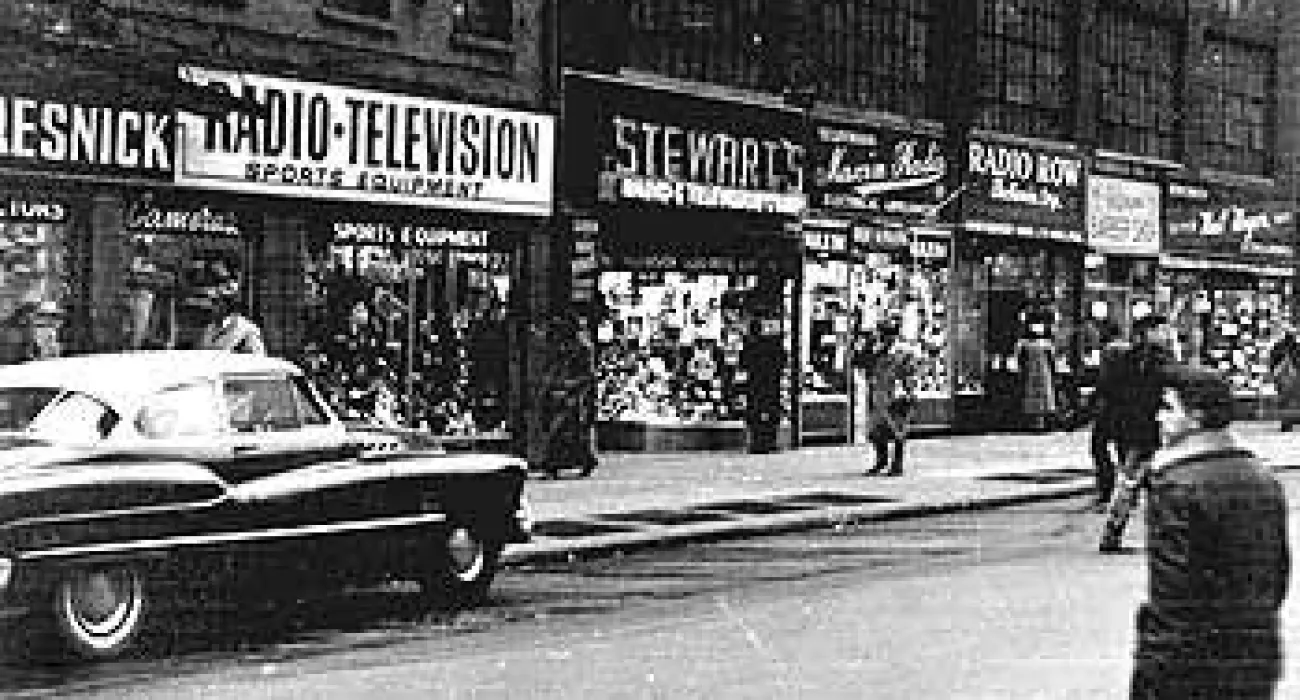I live in Atlanta, so I do my very best to try to see all of the tourist attractions within my hometown city. Some people call them staycations, but there are really many day trips you can take to enjoy local attractions - especially if you live in a major metropolitan area. My wife and I happened to go to the High Museum to check out one of the special venues in the city of Atlanta. The pieces within the museum are a wonderful juxtaposition of traditional and contemporary art. We went specifically because there was an exhibition contrasting photographs of New York City and different parts of the South, including New Orleans.
When we were browsing through the different photographs of people and places, there was one photo of an entire block of stores in New York City in the 1960s. What was so amazing is that amongst the dozen or so stores in the photograph, not one of them was a chain. Each store had its own identity, whether it was grocery store, a shoe store, or a hardware store. You could sense the pride of each store owner by simply glimpsing at the storefronts prominently displayed.
The photograph reminded me of how we miss the days of small business owners who built relationships locally with the people who lived within the community. Remember the grocery store owner who was able to set up a tab for a family that lived around the corner? And the shoe store owner who knew the names of the kids of the parents who shopped at that store? I had a local convenience store right down the street when I grew up called Quik Check, and everybody loved it. I know many people think the Wal-Marts of the world save us money every day. These large stores might have better prices on an item here and there, but all of us end up spending more money as we wander the aisles, aimlessly forgetting why we actually came to the store. The older, local, smaller stores got us what we needed - and it was right down the street when we needed it. Someone cared about us then, whereas the big stores today only care about deepening their wallet share with us.
The museum also had tons of old coffee pots, cups, plates, and various other household items. When people once asked for a spot of tea, it truly meant a very tiny cup of tea. Not a venti-sized, drink-as-much-tea-as-you-can-until-you-can-no-longer-take-anymore, like we have today. There was no Teavana or super-sized coffee houses. When people had a cup of coffee or a bowl of cereal, it was always a small size, and there were no free refills. It probably saved everyone money because they ate less, drank less, and learned the art of portion control. Today, we keep thinking about how we can make it bigger. Look, when you're staring down a Big Gulp of Fanta Orange soda at 9 a.m. in the morning, you know you have a problem. And no matter how much you love the Cheesecake Factory, you don't need to eat an entire garden to enjoy a simple lunchtime salad.
Even the furniture was smaller. There were many antiques within the High, including sideboards and a chest that was used to store clothes. When you have no closet space and a dresser that can barely fit but fifteen or twenty things, then that's most likely all you are going to own. Now we build bigger walk-in closets with more room than the size of my bedroom when was a kid. It's a simple fact that the larger your living space is, the more stuff you'll need to fill it up. If you don't believe me, listen to George Carlin's classic comedy on 'Stuff.'
I'm not sure people have felt it in the wallet hard enough yet or care enough to see some sort of real counterculture in the United States. Sometimes the pain of where you need to go cannot happen until the pain of where you are is great enough for the change to happen. I don't know if we will again see the days of smaller, locally owned businesses lining the streets. I don't if we will again see the day when a spot of tea is really a spot of tea. I don't know if people will shift from spacious living areas back to homes that are more correctly sized than the ones we have today. A trip to the museum reminded me that "smaller" can save you money.
Written by:
Ted Jenkin, CFP®, AAMS®, AWMA®, CRPC®, CMFC®, CRPS®
Co-CEO and Founder of oXYGen Financial, Inc - The Leaders in Gen X & Y Financial Advice and Services
Visit to www.oxygenfinancial.net to request a free consultation with the leading financial experts for people in their 20's, 30's, and 40's in the country.
Securities and Investment Advisory Services offered through NFP Advisor Services, LLC (NFPAS), Member FINRA/SIPC. Oxygen Financial is not affiliated with NFPAS. NFPAS does not provide tax or legal advice. This site is published for residents of the United States only. Registered Representatives and Investment Advisor Representatives of NFP Advisor Services, LLC (NFPAS) may only conduct business with residents of the states and jurisdictions in which they are properly registered. Therefore, a response to a request for information may be delayed. Not all products and services referenced on this site are available in every state and through every representative or advisor listed. For additional information, please contact NFPAS Compliance Department at 512-697-6000. PLEASE NOTE: The information being provided is strictly as a courtesy. When you link to any of the web sites provided here, you are leaving this web site. NFP Advisor Services, LLC makes no representation as to the completeness or accuracy of information provided at these web sites. Nor is NFP Advisor Services, LLC liable for any direct or indirect technical or system issues or any consequences arising out of your access to or your use of third-party technologies, web sites, information and programs made available through this web site. When you access one of these web sites, you are leaving our web site and assume total responsibility and risk for your use of the web sites you are linking to.




